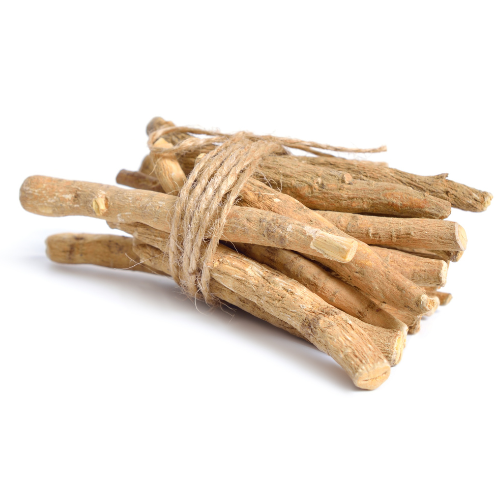Ashwagandha root has been explored in various capacities, from uses in anxiety to weight loss. In this article, I’ll look at the increasing amount of study it’s garnered in the field of fitness, specifically in muscle strength and cardiovascular endurance and performance.
After reviewing dozens of articles, scientific studies, and literature reviews, I found six studies that had actual human trials with performance-based metrics. That is to say, the participants had to actually lift weights, run a shuttle test, or perform on a bike treadmill–I did not use any study that relied on self-reported data.
In turn, I unselected the sixth study as it did not use placebo-control to determine the extent of effect of Ashwagandha root. The remaining five studies, though, all showed improvements of Ashwagandha over the placebo group.
Strength Increases

The first and most rigorous of the studies I’ve reviewed for this article comes from the Journal of the International Society of Sports Medicine, and it was conducted over an 8 week period. It was a randomized, placebo-controlled study and used baseline and conclusion strength performance to judge results. During the 8 weeks, each group was assigned the exact workout regimen that they completed individually under supervision.
The scientists found a significant increase in strength from the Ashwagandha group as compared to the placebo group. During a series of bench press and leg extension reps used to approximate single rep max weights, the Ashwagandha group had a 46 kg (over 90 lbs.) increase in bench press weight and a 14.5 kg weight increase on leg extensions.
This compares with a 26 kg increase on bench press and 9.77 kg increase on leg extensions for the placebo group.
These increases were not only more among the Ashwagandha group, but statistically significant–results could only be duplicated in that circumstance without Ashwagandha in roughly one in a thousand tests.
In addition to the strength testing, the team of researchers also took blood samples as secondary measures to determine if there were any other changes. And indeed there were. Researchers found:
A second study was also evaluated, though I almost didn’t include it. While this study also had double-blinding, placebo controls, and used strength testing, it was funded by a well-known Ashwagandha root supplement manufacturer.
Their results were statistically significant, showing a clear benefit to Ashwagandha use in strength training. I include it here as support of the first study, since there is a conflict of interest. I will note, however, that this study was triple-blinded in a fashion, in that a third-party evaluated their results and compiled their statistical analysis.
Endurance Training
I found credible studies with reliable frameworks that all support substantial benefits to Ashwagandha intake for endurance and stamina. Two of them focused on non-athlete participants, which speaks well to the average person deriving benefit, but the third study focused on “elite” cyclists, which provides another layer to the evaluation.

First Two Studies
One study focused on maximum oxygen taken in by the lungs during a sprinting exercise (known as the “shuttle test”), and also took self-reported data from the participants. With all respect to the qualitative data, we’ll keep this focused on the empirical data, as it fits with the other findings of this review.
In this study, maximum oxygen that the participants could take in was increased even after only 8 weeks compared to the placebo group, and continued to increase through week 12. Increases over the length of the study were almost 6% for the Ashwagandha group compared to less than 2% for the placebo.
The second study I reviewed for cardiovascular benefits took in seven total empiric data points, with four of them returning statistically significant increases in the Ashwagandha groups over the others.
Despite these results, the study found no significant benefit to resting or active heart rates or blood pressure.
These data also found no general benefit to what they termed “balance,” which speaks to a possible lack of study on what the researchers were trying to measure or achieve with these results.
Overall, this study was one of the more rigorous that I reviewed, and I find their data the most reliable, though the study did only take place over 8 weeks, and all the participants were studied for their current active lifestyles and general health.
More studies would need to be conducted on whether Ashwagandha is a good remedy for people with physical ailments, or who are trying to establish healthier lifestyles.
Study on Elite Bicyclists

I have included this study for a few reasons, not just because it is a well-designed, well-executed study with results pertinent to the subject. The first reason is that the subjects were all already elite athletes, suggesting that if they derived benefit than any athlete could. The second reason is that it may provide a key to what Ashwagandha root does not do.
The study appeared in the Journal of Ayurveda and Integrative Medicine, and was conducted with only two groups, placebo controlled. Researchers found significant increases in max oxygen (yet a third study with that result), but also found significant increases in total time until exhaustion. This measured the total amount of time each athlete could stay on the treadmill at peak effort. The Ashwagandha group upped their average time from 15.79 minutes to 16.93, an increase of over a minute. By contrast, the placebo group only went up by 0.02 minutes–far less than even a second.
What the study did not find, though, was any increase in Respiratory Exchange Rate, or the amount of CO2 the body exchanges for Oxygen per breath. This indicates that the other benefits of Ashwagandha do not extend to purging, only to oxygenating.
Conclusion
It appears from all evidence that Ashwagandha root is a safe and effective supplement for anyone in an active, healthy physical routine. Because each study started with either active people or average people that they then placed in active regimens, it should be noted that there is no evidence that Ashwagandha can increase physical attributes all by itself.
Put another way, like nearly all supplements, Ashwagandha only works when the participant is working as well. These results transcend even to elite athletes. The determination seems to be that anyone engaging in healthy exercise could benefit on a strength and endurance level from Ashwagandha supplementation.
